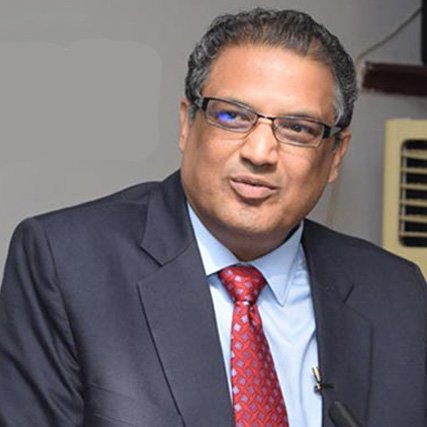Be it a pen tribe, a cameraman or a brush maker, everyone sometimes gets garlands of flowers while often comes into contact with abusers. Even if you ignore the flowers and abuse, sometimes they still hurt your heart. The life of these creative professions is very difficult. Sometimes you find an admirer who goes to you like charity and sometimes a bigoted critic whose hatred is visible in his eyes and insults in his tongue. Earlier, in the land of contradictions, the state and extremists used to blame creators for keeping them under pressure. Now, those who have popular narratives have also adopted the same approach. In societies prone to decline, the true Galileo, the universal Socrates, the wise Ibn Rushd and the far-sighted Sir Syed Ahmed Khan are not popular. They stood firm against the popular narrative in their respective times. The lesson of history is that Galileo, Socrates, Ibn Rushd and Sir Syed are alive today, these infamous figures of their time are remembered with a certain amount of respect, and the popular figures of that time have become resentful and obsolete today. Today, the dilemma of the creator is not only to break the state narrative but also to expose the errors of the popular narrative. Those who are flowing in the flow of the popular narrative should remember that where the best jihad is to speak the word of truth in front of an oppressive ruler, the most difficult task is to stand against the popular narrative, and not to be bored by abuse is also the highest level of bravery. It is better to be cut into the chest of the river like a sharp stone than to swim weightlessly in a flowing river. This is also the golden ladder of struggle, even if it is fruitless. In his last years, the late and forgiving Ashfaq Ahmed told me two or three times, “My heart is no longer inclined to write on small topics. I want to write on a big topic.” When I did, I realized that he wanted to make the oppressive behavior of the world’s only superpower, America, the subject, but life was not faithful and we were deprived of seeing any of his masterpieces on this topic. From the topics scattered around him, creators prefer to choose the topic that they think excites them the most. Today’s exciting topic is two contradictory narratives of Pakistan’s future. One is General Asim Munir’s narrative of “hope” and on the other hand, his opposing narrative is that “this country is going to be destroyed.” The popular narrative is unfortunately that “Pakistan is going to be destroyed” and if anyone expresses a different opinion then there is a risk of abuse, trolling and unpopularity, although Mansoor is a metaphor for truth today, but when he was being hanged, didn’t everyone stone him, no one stood by him. Today, old Rai Ahmed Khan Kharal is a metaphor for resistance in Punjab, but when he was fighting the British ruler Berkeley, neither Makhdoom Shah Mahmood Qureshi of Multan sent him flowers nor did the Kharals of the Nawab family of that time. Rather, both of them were part of the English conspiracy. Ahmed Khan, alone, was martyred on the 10th of Muharram, and the Qureshi Pirs and Kharals who stood by the popular narrative got their Nawab jagirs and khilaats. The infamous Rai Ahmed Khan Kharal of that time is today’s hero and the respected Qureshis, Nawabs, Kharals of that time are traitors and zeros. And what respect did you and the majority of society give to Saadat Hasan Manto? Sued for pornography, such a big man and always at the expense of the houseHe was tight-lipped, today Manto is the great prose writer of the century and was suspicious in his time. Faiz is now popular but he was a traitor of his time. The state did nothing with Faraz and even his lovers did not have the courage to stand with him. A creator has to speak without needing abuse and flowery words, only then he lives in history. He can speak the truth without fear if he transcends the popularity and unpopularity of his time. If he joins the crowd, how will he be able to teach a lesson of wisdom?
In a 40-year journalistic journey, stories of state oppression are never heard again. The story of garlands of flowers worn is not today’s topic, nor is it appropriate to enjoy the petals of flowers showered on me. Self-praise can only be digested in the praise of poets, this is not beautiful for humble pen workers. Today’s topic is those behaviors that come up again and again in a society of intolerance. When I wrote a humorous and satirical column on the late and forgiven Nawabzada Nasrullah Khan, he beautifully demonstrated tolerance by turning sharp sentences into laughter. Qazi Hussain Ahmed was one of my mentors, he also used to show a lot of personal kindness, but when I raised my pen in an English column on the narrow-mindedness of Jamaat-e-Islami, he got angry. Mohtarma Benazir Bhutto used to praise me in a crowded gathering, but once I repeated the same stinging question over and over again, she started crying and I had to apologize and appease her. Nawaz Sharif also takes offense immediately; when he hears a critical sentence, his complexion turns red with anger. Shahbaz Sharif tolerates criticism but later complains and complains. Imran Khan, on the other hand, comes down to abuse after reading or listening to a satirical, humorous, critical article or dialogue. President Zardari also shows patience and tolerance. Nawaz Sharif and Asif Zardari also make fun of me by imitating my tone and questions. Imran Khan also mentions the incidents and questions of the interview conducted with him in every meeting. Once I wrote a critical and satirical column on Faisal Vawda. When we met, he complained, but his manner was a manifestation of utmost civility and respect. I had good relations with the late Rehman Malik all my life. Once I wrote a column on his contradictory and flattering behavior, he got into a fight with me during the meeting and accused me that this column was written at the behest of the agency. After hearing our arguments, Zardari, who was there, got interested and silenced Rehman Malik. This humble journalist has never scandalized anyone, has never spoken ill of anyone in his life, however, he has certainly used humor and polite criticism, and has tried never to hurt anyone, and the expectation in return is that everything can be answered in a polite manner, but when you hurt with a dagger and the tip of your tongue, even the humble feel hurt. The main difference between a civilized and an uncivilized society is tolerance and patience. In civilized societies, praise, criticism, sarcasm and humor are all common, scandals are also discussed, but no one hurts. In an uncivilized society, everyone hurts others, the wound of the wound is deep and does not heal quickly. The wounds of the PTI and the state against each other are hurting the entire society, is it general or special? We have adopted the habit of hunting each other with hidden daggers. Until this stops, there will be no reconciliation.
Note: This is the translation of his Urdu column published in Jang
 Colors
Colors  View Books
View Books 



